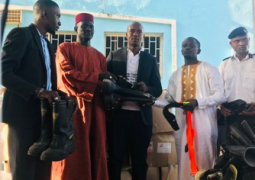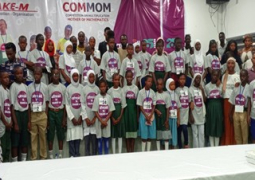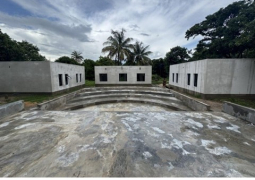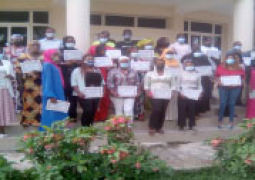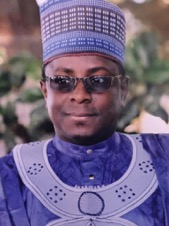
The London Book Fair is the most popular book fair in the world. Annually, it brings together approximately 25,000 professionals in the book industry including publishers, booksellers, libraries, book distributors and literary agents. It is the global marketplace where people negotiate content rights and exchange ideas.
This year it is scheduled to take place from 18 to 20 April at London Olympia, the United Kingdom. This year, the organisers expect the event to attract thousands of visitors from across the world since the Covid-19 pandemic.
On behalf of The Gambia for the first time in history, Suba Kunda Publishing will be attending the event to exhibit books authored by local writers which will be a great opportunity to market Gambia's literature overseas.
Amir Sillah has also been invited by the University of Cambridge as a panelist to attend the ‘Cambridge Africa Together Conference’ scheduled to take place from 12 to 14 May 2023 at the Cambridge University, the United Kingdom.
In an interview with The Point, Mr Sillah says his idea to establish a publishing company came following his first attendance at the London Book Fair in 2018 when he met people from various parts of the world and realised that Gambian authors’ books were not being published by a company, hence the nation and its authors were missing out.
After establishing his company in 2019, Mr Sillah decided that for a period five years, he would be committed to publishing Gambian authors’ books for free (including editing and printing) and taking them to London Book Fair.
“I felt the need for Gambian authors’ books to be exhibited at the fair and we have achieved our goal by publishing several books authored by Gambians including Nana Gray Johnson, Rohey Fofana, and Essa Bah,” he said.
Sillah, who himself has authored several books, says books are also meant to sell one’s culture to the world.
He says most of his books are based on African ideologies and have been receiving a lot of positive feedback from readers.
He also said that his exhibition of Gambia authors’ books at the fair is to also support Gambian writers because people empower their countries’ writers by ensuring that what they write does not only stay within their country.
Sillah, a member of the Gambia Writers’ Association, said every year they organise a convergence on how to support writers by giving them ideas, training them on writing and ensuring their works reach the wider world.
He highlighted that 99 per cent of books written by Gambians were not available online but after he attended the fair he ensured every book he authors is available online as well as those he published for Gambian authors.
Sillah, who never attained formal English education, noted that he attained his knowledge through adult literacy in 1993 when “I applied for a US visa but could not speak English and was denied a visa”.
He says further that he enjoys reading but his writing was inspired when he visited New Zealand in 2013 and went to Saudi Arabia to perform Hajj and read a book titled Marriage and Family building in Islam.
He observed that most Gambians do not have the habit of reading. “They read only to pass exams,” he noted, saying that books are not meant to be read only to pass exams but to also access information one can learn from.
He also said that only 2 per cent of Gambians purchase books, which has caused them to encounter a lot of challenges since establishing the bookshop.
However, he said, he has initiated a program titled “a book, a child” wherein he buy books and gives them to schools. “We also realized that when we give the books to schools they put them in their libraries with students not reading them,” he expresses concern, saying: “So last year we initiated the Amir Book Award were we give schools six months after giving them books to read and we give them questions based on those books and award them prices if they answer the questions correctly.”
He advises people to read as much as they can and write as often as possible, saying studies have shown that those who read more are richer than those who read less because they stumble on new ideas that improve their lives and livelihood always.
He says Gambian youth can achieve anything provided they seek knowledge through books. He also encourages Africans, particularly Gambian authors, to write more about their culture and history. “Africa has a lot of positive things to offer and we are the ones that can sell those things to the world,” Mr Sillah the bibliophile says.


